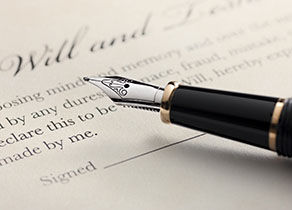"He died intestate" means that he died without a will. What happens to your assets? Does the money go to the state?
Well, not so fast: assets are usually frozen when somebody dies. A power of attorney is useless because it dies when the principal dies.
If you don’t plan for yourself, the government has a plan for you. We call it the laws of intestacy.
Before anything can be done with assets or property, somebody (usually a family member) has to petition the court to be appointed as "administrator". Pennsylvania law provides a list of people who can qualify (or who must renounce if somebody else wants to do it). Until an administrator is approved, everything is in limbo.
The administrator's job is to figure all of this out: what did the decedent (person who died) own and who gets it? Sometimes this results in visits to local banks where the decedent may have had accounts and other financial detective work.
Some assets have beneficiary designations and pass to those persons. If not, the administrator takes over. Debts and taxes have to be paid according to the statute. Whatever is left gets distributed to . . . welcome to the Tables of Consanguinity!
Bottom Line: It is much easier for your family and far less expensive to have a simple will.
In a will, you name an executor who is in charge of your estate. You specify who gets what and how. A will eliminates the uncertainty of the government plan for your estate.
© Copyright 2016, Kevin F. Danyi, JD, LLM

